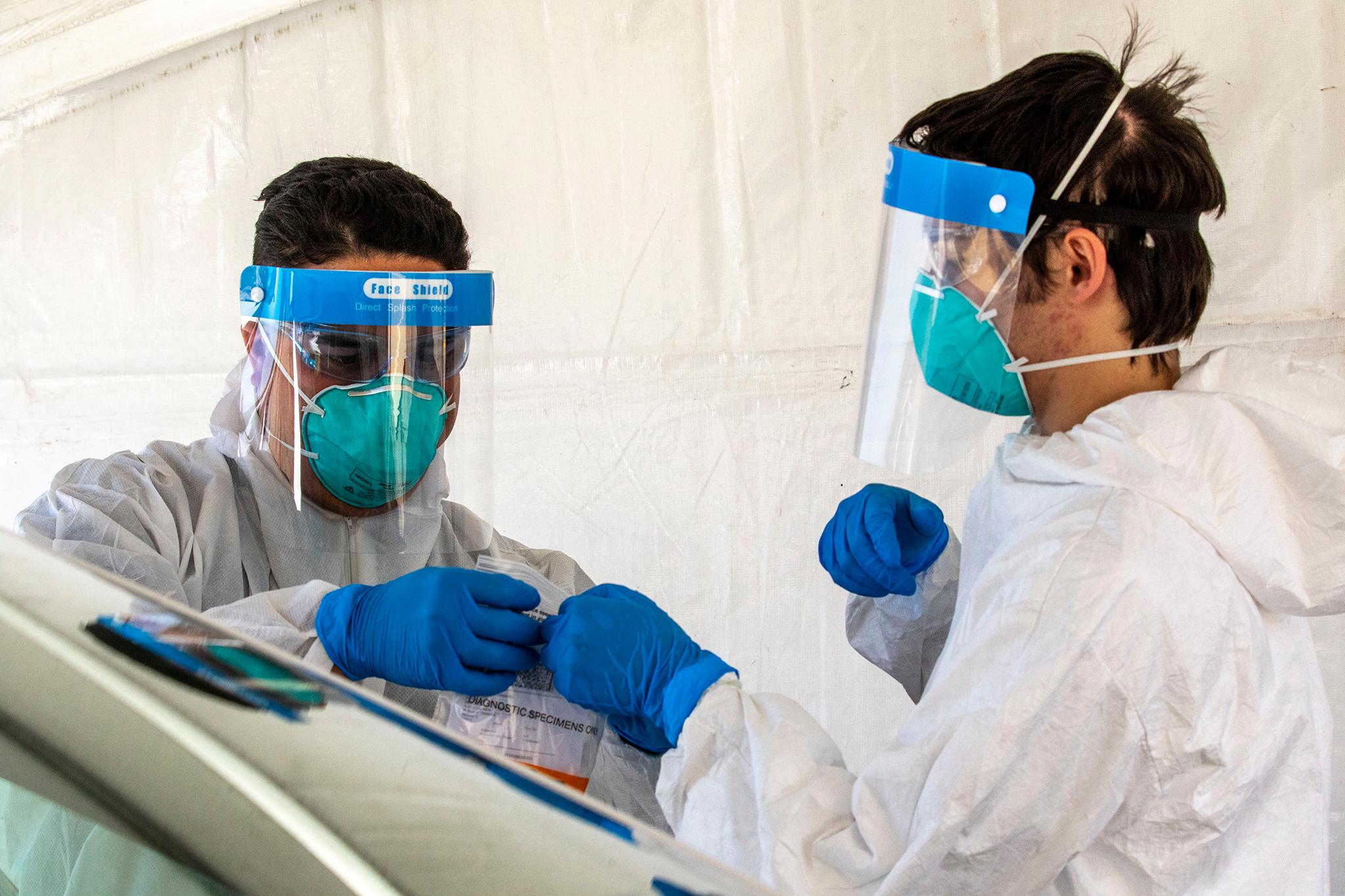Public health officials will not share personal information obtained through COVID-19 testing with law enforcement officials for the purpose of investigating criminal activity, a city spokesperson said Monday.
After four days of peaceful protests and late-night chaos, Mayor Michael Hancock asked anyone involved in the events to get tested for the respiratory virus at Denver's free, large-scale testing site at the Pepsi Center. Thousands of people participated in the protests, which included risk factors for spreading the disease: prolonged contact with strangers accompanied by yelling, chanting and singing.
And of course, there was violence. While some people threw rocks, water bottles and launched fireworks, officers with the Denver Police Department launched chemicals and non-lethal bullets into crowds and physically subdued protesters and agitators. As a result, some locals expressed distrust with government-run COVID-19 testing at the Pepsi Center.
Mayor Hancock told Colorado Public Radio on Monday that people can get tested "no questions asked" and that "we just need to get people tested."
Denver's and Colorado's public health departments do ask questions before testing patients, though. Anyone who gets tested is asked to register with their names, address and phone number among other information, but giving all information is not mandatory, the form states. The form also states personal information is confidential.
"Your information and your test results will be protected and kept confidential and will only be shared with the Colorado Department of Public Health & Environment and Denver Department of Public Health & Environment as required by state law," the form states.
The Health Insurance Portability and Accountability Act, or HIPAA, is meant to protect the rights of medical patients but does make six exceptions for law enforcement purposes. For instance, the federal government says private information can be disclosed "to identify or locate a suspect" among other exceptions.
Laura Swartz, a spokesperson with the city of Denver, told Denverite that "data obtained at the testing site is not used for criminal investigations."
Anyone who attended mass rallies or protests should wait several days to get tested, health professionals say, to ensure its presence is measurable, and to catch it early enough to prevent transmission.
"As far as the timing for individuals who are asymptomatic, our recommendations right now are for individuals who believe they've been exposed to a case of COVID-19 to seek testing at approximately seven days after that exposure occurred," said Rachel Herlihy an epidemiologist with the Colorado Department of Public Health and Environment.
Denverite reporters received tests at the site yesterday. Medical workers asked no questions related to protesting.













